The CMBA Blogathon — The Fabulous Films of the 1930s: Men Call It Love (1931)
Three observations about Men Call It Love.
- It’s a rather ambiguous title, isn’t it? WHAT do they call love? Why do they call it that? What do women call it?
- It’s not well-known in the world of pre-Code; I’d wager that a poll of classic film lovers – even those with a special affinity for pre-Code – would turn up only a handful who’ve even heard of it.
- And its cast doesn’t boast any high-powered, widely recognized names. The most familiar performer is Adolphe Menjou, and he’s not exactly in the same realm as such pre-Code favorites as Warren William, Robert Montgomery, or William Powell.
These considerations notwithstanding, I’m here to say that I’m simply wild about this movie and cannot get enough of it.
What’s it all about?
Men Call It Love focuses on a blissfully married couple, Jack and Connie Mills, whose happiness is threatened from a number of quarters, for a number of reasons. (Proceed gingerly – spoilers abound – but they won’t ruin the movie for you, should you have the opportunity to see it. I promise!) First off, Connie hears a rumor that her husband had an affair with a “Follies” girl. He denies it, emphatically, and she believes him – but in actuality, it’s true. Then there’s Tony Minot, a womanizing golf pro who has set his sights on Connie – though everyone seems to realize it except her. And finally, into the mix comes the married but miserable Helen Robinson, who, having recently ended a fling with Tony, decides that she’d next like to sample Jack’s wares. (If you know what I mean.) Ultimately, of course, all’s well with our couple – but not without some serious bumps in the road and a near matrimonial dead end. All things considered, Men Call It Love is a fascinating look at marriage, divorce, fidelity, virtue, morality, and honor – and all that those concepts entail.
The Characters
One of the most captivating aspects of the film, for me, is not the twisty-tangly plot – which certainly grabs and holds your interest – but the characters who inhabit it. They are each multidimensional and intriguing in their own way, and serve to make this film a must-see.
Connie (Leila Hyams)
The most wholesome and righteous female I’ve seen in many a pre-Code, Connie is fairly brimming with goodness and believes everyone else is, as well. When her friend, Callie (Hedda Hopper) merrily broadcasts at a party that her divorce has just become final, Connie concludes that Callie has too much pride to let her friends see her pain – it’s practically impossible for Connie to conceive that a woman would be happy about the end of her marriage. When Connie’s told by Helen, in no uncertain terms, that Tony has designs on her, she laughs it off, convinced that he is only interested in helping her to improve her golf game. And when Connie hears the rumor about Jack’s affair, she is easily convinced by her oh-so-earnest husband that it is a mere misunderstanding. “I’ve got to believe you,” Connie tells him. “You mustn’t blame me for being so silly. It’s just because I love you so much, that’s all.” It’s not until Connie literally catches her husband in the act that she’s not only forced to see Jack for what he really is, but also to re-examine and reformulate her own beliefs and values.
Jack (Norman Foster)
On the surface, Jack is a loving husband, devoted to his sweetly fetching wife, and absolutely thrilled to be a married man. But underneath, he’s not quite such a sterling character. We already know that he has had (and may even still be having) an affair, and later, when Connie leaves the house to attend an overnight party, all it takes is a visit from a beautiful woman and a few cocktails, and he’s off to the races again. Despite his dalliances, though, Jack is still a likable character – he clearly does love his wife, and it’s not as if he seeks out other women; he just seems to lack the capacity to fend them off. What’s more, he seems to be a bit clueless when it comes to the reasons why infidelity is completely unacceptable. He understands that it’s something that you’re supposed to hide from your wife, but he seems a less clear that it’s something that shouldn’t happen at all. After Connie walks in on him (we presume in bed) with another woman, we naturally expect him to tell her that he wishes the entire episode had never happened, but instead, he says, “I’d have given anything if I could have lied successfully again.” (Seriously.) And in another scene that provides an illuminating glimpse into his character, Jack advises a friend that he should never, ever apologize to his wife – even if it turns out that he’s wrong. It’s not until much later, after his marriage disintegrates and Connie asks him for a divorce, that Jack’s eyes seem to be truly opened. We hope.
Tony Minot (Adolphe Menjou)
Suave and sophisticated, and supremely confident in his effect on the opposite sex, Tony appears to be the “love ‘em and leave ‘em” type, with little regard to whether the woman is married or not – a friend jokes that he has another job in addition to his golf career: “Jumping out of bedroom windows.” But like Jack, who turns out to be quite different from the decent, honorable man that he appears, Tony, too, is not all that he initially seems. For instance, while Tony makes it clear that he has his eye on Jack’s wife, he doesn’t actively pursue her (“I am interested in Connie, or I would be if I had any encouragement,” he tells Jack) – in fact, he even reminds Jack how fortunate he is to have a wife like Connie and sternly admonishes him for “playing around with a Follies girl.” And though Tony doesn’t object when, on the rebound from Jack, Connie turns to him, he soon realizes that Connie doesn’t have what it takes to engage in an affair (“I’m not a very good bad woman,” she concludes) and allows her to stay in his apartment while he nobly spends the night at his club. Not only that, but when Tony is finally able to convince Connie to ask Jack for a divorce and marry him, he turns out to be a knight in shining armor, bowing out when he recognizes that Connie and Jack are still – despite their actions – very much in love.
Helen Robinson (Mary Duncan)
Helen is probably the most despicable – but fascinating – character in the film. She divides her time between publicly humiliating her weak-willed husband, Joe (Robert Emmett Keane), and hopping from man to man. In the film’s first scene, at a swank party, her husband falls ill from a case of indigestion. When Connie finds Helen and tells her, Helen responds, “I know what I should do with him, but it would be just my luck to get a jury of women.” Later, when Joe hints that he knows she’s having an affair with Tony, Helen reacts with righteous indignation and – even though he was right on the money – heatedly insists that he apologize for the slight. (And he does!) And in case you hadn’t already guessed, the woman who Connie discovered “in flagrante delicto” with Jack? None other than Helen. Oh, she didn’t arrive at his house intending to wind up in his bed, but when she (1) discovered Connie was gone and that (2) Jack was serving cocktails, all bets were off. After a couple of drinks, Helen was all over him like a duck on a junebug: “You know something, Jack – you’re interesting! I think you’re charming,” Mary exclaims. “I never thought of you like this before. You were just always Connie’s husband.”
Those lines . . . oh! Those lines!
In addition to the fabulous characters, Men Call It Love contains the kind of pre-Code dialogue that leaves you with your mouth hanging open in astonished delight. Here’s what I mean:
- At the party that Callie throws to announce her divorce, Helen Robinson is playing a game of bridge, but leaves the table when her husband starts to display signs of a stomach upset. Helen encounters Callie and asks her if she can provide Joe with some bicarbonate of soda. “Either that or a little prussic acid,” Helen jokingly suggests as an alternative, and the two women laugh and laugh. (For those of you who don’t know what prussic acid is, it’s a colorless, extremely poisonous liquid. Hilarious!) Later, when Joe first complains that his heart is beating too rapidly, and then fears that it’s not beating at all, Helen rejoins, “Can I depend on that?”
- After Callie and her new ex-spouse, Henry (Cosmo Kyrle Bellew), publicly shared the news about their divorce, Callie’s gal pals rush to her with cries of congratulations, and Henry’s friends bombard him, concerned primarily that the split “doesn’t give us any place to go weekends!”
- Tony gives Jack and Connie a ride home after the party and invites himself in for a drink. Alone with Tony, Jack asks him why he’s really there, stating, “You and I don’t like each other. You know that.” Tony feigns bewilderment, and says he didn’t know that. And Jack responds, “Well, you know it now.” (Burn!) Jack goes on to tell Tony that he knows Tony has the hots for Connie, adding, “And your interest in Connie doesn’t interest me. In other words, how would you like to get the blazes out of here?” (Incidentally, Jack has an ever-so-pleasant smile on his face during this entire conversation – but if looks could kill, Tony would be on his way to the morgue.)
- In a women’s locker room, following a day on the golf course, we see Callie tuning up to share some juicy gossip with a friend. Before she does, she calls out the name of Helen Robinson several times. Helen appears from around the corner, and asks if Callie was looking for her. “No, darling,” Callie retorts, “I just wanted to make sure you were here before I started talking about you.”
- In that same locker room, a woman emerges from the dressing area with her sweater stuck over her head. She laughingly says that she’s suffocating, and calls out for assistance. “It depends on who it is,” responds one locker room patron. “I know 20 women I’d love to see suffocate.”
- Callie invites Connie to her house for another weekend party, and Connie says she’ll have to check first with Jack, as he might have other plans. “If he has, bring somebody else’s husband!” Callie suggests. Overhearing, Helen asks if she can bring someone else’s husband instead of her own, and Callie tells her, “You don’t have to, darling. You’ll grab somebody else’s husband the minute you get there.”
- When Helen shows up unexpectedly at Jack’s house, she tells him that she and her husband have had another fight and that he’ll be attending the party at Callie’s alone. She also shares that her jubilance is not the result of alcohol: “That’s just the natural result of knowing I shan’t see Joe for three days!”
- After a few cocktails with Helen, Jack starts talking about the sport of boxing, and sharing that he used to be an amateur fighter. “Let me feel your muscle,” Helen coos. “Oooh, it’s just like iron!” A few seconds later, she’s removing her sweater, commenting, “I’m warm, aren’t you?”
- A little later, still at Jack’s, Helen tosses all subtlety to the four winds and goes for broke: “Don’t you want to play around with me this evening, Jack? Oh, we’d have a marvelous time!” she proposes. “We can dine where no one will see us – I know just the place. The best things to drink and Hawaiian music. Outdoors, under the moon. Ah, just think, Jack – a summer’s night tossed our way! Don’t you want to catch it? Please say you do. Please.”
- After Connie spends the night at Tony’s apartment, Jack assumes that she wants her freedom and will seek a divorce. “Why?” Connie asks. “To marry some other man so he can do the same things you’ve done? No, Jack . . . You’ll play around as much as you like, and so will I.” (Whoa!)
Random Other Stuff:
This was my first time seeing a film featuring Mary Duncan, who played Helen Robinson. It turns out that she was only in 16 films; she retired from the big screen in 1933, after she married Stephen Sanford, an international polo star and director of the Bigelow-Sanford Carpet Company, the first carpet mill in America. She devoted much of her time to fundraising activities for a number of charities and became a prominent member of Palm Beach society. Duncan died at the age of 98 in 1993.
Men Call It Love was based on a play, Among the Married, which was produced on Broadway in 1929. It closed after just 44 performances. The cast included Frank Morgan (of The Wizard of Oz fame) as Jack.
The cast of the film included Hedda Hopper, several years before she left acting behind and became a well-known gossip columnist, renowned for her fanciful hats.
The film was directed by Edgar Selwyn, who went on to helm The Sin of Madelon Claudet (1931) and Skyscraper Souls (1932). He also wrote the play that was the basis for the film Possessed (1931), which starred Joan Crawford and Clark Gable. In 1916, Selwyn and his brother, Archibald, teamed up with producer Samuel Goldfish to create the Goldwyn Pictures Corp. Goldfish liked the name so much that he adopted it as his own, becoming Samuel Goldwyn. A few years later, Goldwyn left the company to become an independent producer, and Goldwyn Pictures eventually merged with Metro Pictures and Louis B. Mayer Productions to become Metro-Goldwyn-Mayer (MGM) – the studio that made Men Call It Love.
The Bottom Line
I wish that Men Call It Love were better known – it’s simply overflowing with high-society shenanigans that have to be seen to be believed. Mix together the story, the characters, the performances, and the dialogue, and you’ve got a recipe for a first-rate entry from the pre-Code era. (And, boy, is it tasty!) The film isn’t on DVD, but it does air from time to time on TCM – to see a five-minute clip, click below. And if you ever get the chance to check out the whole picture, be sure you do – it’s a pip!
You only owe it to yourself.
This post is part of the Fabulous Films of the 30s Blogathon, sponsored by the Classic Movie Blog Association. Click the banner below to check out the many awesome posts that are participating in this fabulous event!

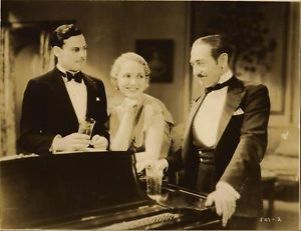






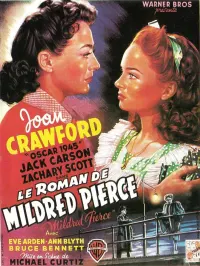




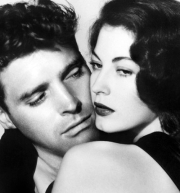
















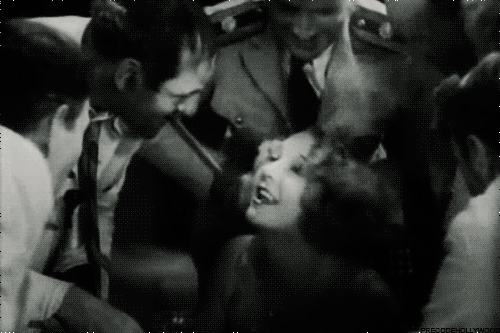


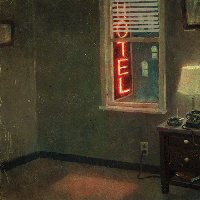
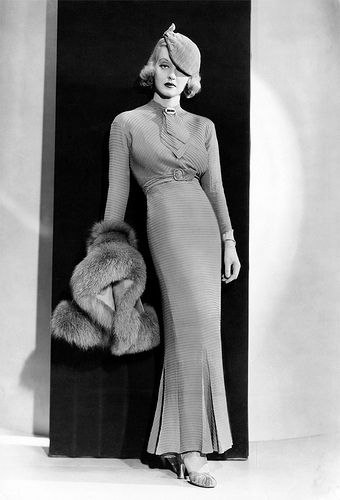



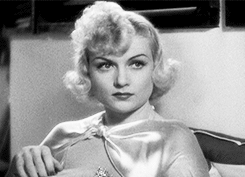
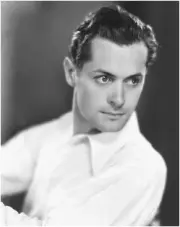
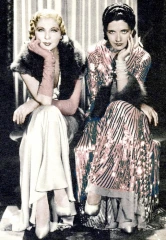

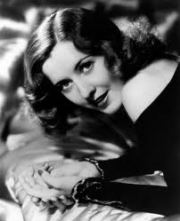



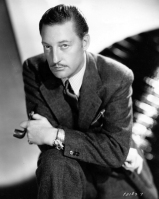




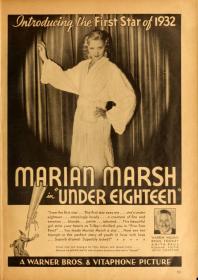
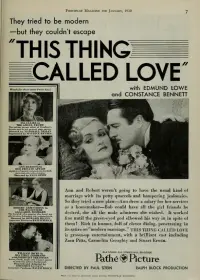

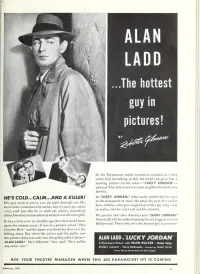
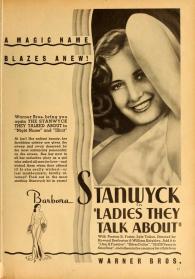

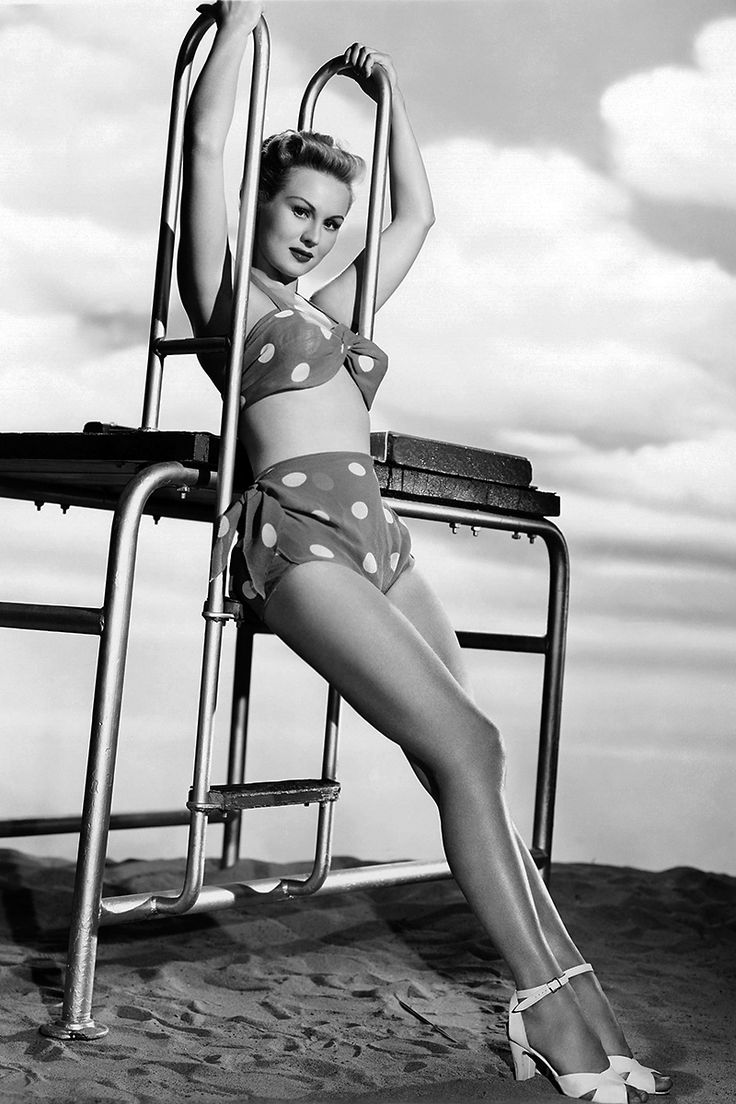



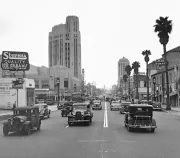
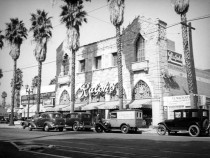


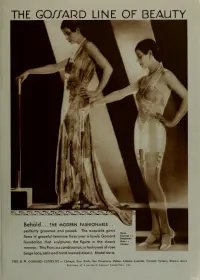

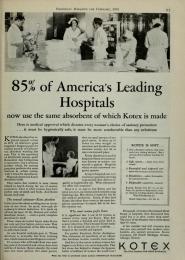

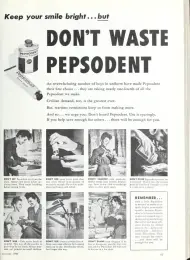


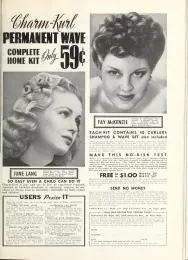





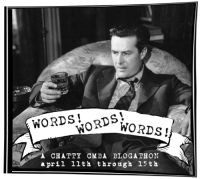

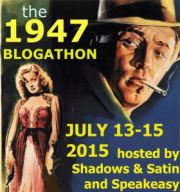
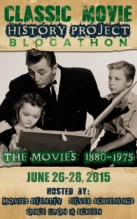
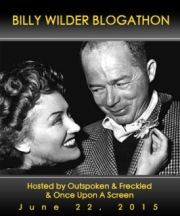


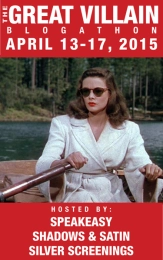


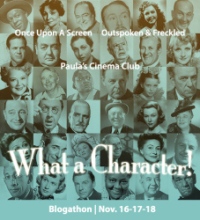
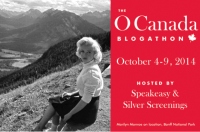


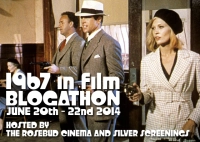


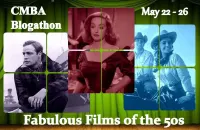
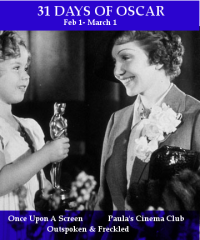
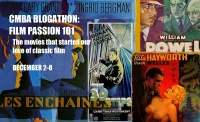







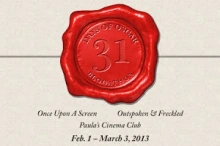

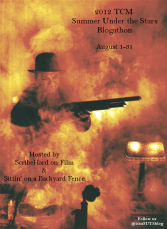


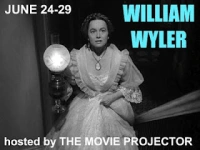





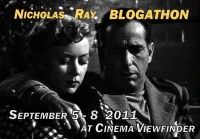

I can’t believe that wonderful dialogue! Helen in particular sounds fascinating. Thank you so much for sharing this with us!
Who can we write to to make this available on DVD!? I must see it!
Great post on a film a little known film. I really want to see it now
Thank you so much, Amanda! I’m keeping my fingers crossed that it pops up TCM again soon!
I’ve got to see this. Thanks for putting it on my radar, Karen!
Great post. How did y see the film (aka how can we)?
Thanks for telling us all about this little known gem. I suggested it to TCM in the hopes that they will play it soon. I can’t seem to find the section on their page where you can suggest it for DVD. Maybe I’ll write to the Forbidden Hollywood DVD folks and see if there will be another DVD set, and to see if this could possibly be included.
What a great idea, Amy — I hope it works and TCM will air it again. And that would be awesome if it could be in a Forbidden Hollywood set!
Like Danny said, I have to see this. Probably saw it listed on TCM and passed over it not knowing anything about it. I will definitely be on the lookout for it. and Leila Hyams is gorgeous!
“I’d wager that a poll of classic film lovers – even those with a special affinity for pre-Code – would turn up only a handful who’ve even heard of it.” You’re going to make a mint!
I’m particularly fond of Leila Hyams and Norman Foster so I’m moving this to the top of the old must-see list. It never ceases to amaze me how those 30s gals go for Adolphe Menjou. Sounds like dandy.
Karen, you pick the most interesting films for your site, and here’s another one. I haven’t heard of this one before, but you can bet I’ll be watching for it!
Thanks, Ruth — I’ve got to figure out how to copy my DVDs so I can share them. You would really like this one, I’m sure!
Reblogged this on the last drive in and commented:
Karen from Shadows and Satin and The Dark Pages offers up some Pre-Code love for The Fabulous 30s Blogathon…
Thanks for the reblog, Joey! You’re the berries. 🙂
I agree about the dialogue. It sounds like a film that just flows with great lines. “I’m not a very good bad woman” fabulous line wonderful piece!!!!! Cheers Joey
Thank you so much, Joey — it’s great to hear from you. Hope all is well!
I had never heard of this movie! However, the quotes and the clip are great fun, so I’ll be looking for it.
It’s a good one, Rick — I know you would like it!
Good review! Haven’t seen this one, but want to now.
Thank you so much! I hope you get a chance to see it. It’s really something!
Great review! I’ve never seen this but it sounds amazing! I really enjoyed your selection of dialogue–delightfully mean, bitter, and awesome!
Thank you so much! You’re so right about the dialogue — it was all of that! 🙂
Sounds like a treat! I will keep my eyes open for it.
Thanks, Gwen! I hope TCM plays it again soon — it’s a winner!
Holy Cats, this is quite a movie, and you sure got my attention! 😀 Great job!
[…] to be seen. I have looking out for this one since I read Karen of Shadows and Satin’s post about it. High society shenanigans mixed with pre-code goodness, make sure to watch this little […]
The Summer Under the Stars Blogathon: A MOVIE A DAY GUIDE – Now Voyaging said this on July 30, 2015 at 6:47 am |
[…] Karen over at Shadows & Satin is “wild” over this one and goes into it with a lot more detail than me. So if you think I’m not giving it a fair shake, read her site! (Not that you shouldn’t always do that anyways…) Here’s her talking about fourth-billed house wrecker Duncan: […]
[…] her role in Freaks (1932), but she was also a standout in two of my favorite features from the era: Men Call It Love (1931) and Red-Headed Woman (1932). Hyams started her career as a model, retired in 1936, and was […]